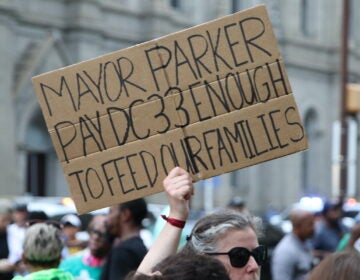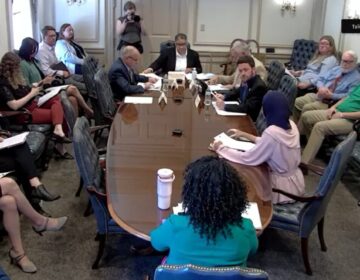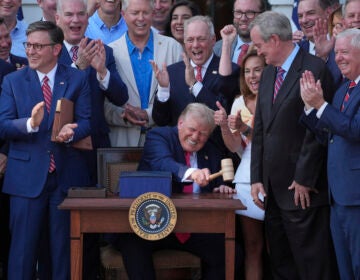IRS’ Tea Party scrutiny was a huge blunder, but a deeper issue lurks beneath
Let’s try to do something that Washington has a hard time doing once a whiff of scandal is in the air.
Let’s keep our bearings. Let’s survey all the moving parts of an issue.
The issue at hand is the IRS and the Tea Party. First off, to make the vital point:
There is no justification, none, for singling out Tea Party groups for special scrutiny of their tax-exempt status.
Deploying, or even appearing to deploy, the IRS’ power to pursue political agendas is wrong. That’s true whether the targets are peace activists in the Watergate era or anti-tax activists in the Obama era.
It sure looks like an IRS office gave a particularly hard time to Tea Party groups that applied for what’s known as 501(c)4 status as a “social welfare” nonprofit.
Not good. Not right.
(I wrote this commentary for taping on radio before reading the Sunday New York Times piece on the dysfunctions of the Cincinnati IRS office that handled the 501(c)4 applications. That nicely reported story suggests that the problems there stemmed from a situation more like an episode of The Office than of Scandal. In other words, bad management, bad morale and inside-the-bubble bureaucratic cluelessness, not deep and devious partisan plotting.)
A flood of phonies
But try to keep the point that the IRS messed up distinct from another vital one:
The nation has a real problem with 501(c)4 status being used as a front for blatantly political activity. And I’m not even talking about the Sierra Club or the NRA, established 501(c)4’s that clearly pack political clout. They at least perform other acts of issue advocacy or member service that keep their social welfare fig leaf in place.
This last election season saw a flood of new, phony 501c4’s pumping untold millions into elections without scrutiny. For that you can thank the folks in robes on our Supreme Court. The court’s Citizens United decision set off a race among political activists of all stripes to set up 501(c)4 nonprofits as fronts. Why? Because such organizations, unlike political action committees, don’t have to report their donors.
This, along with no limits on donations, made them a popular new tool for those who seek to nudge the outcomes of elections in their preferred direction.
And these political outfits found it child’s play to steer around vague IRS rules on what constitutes inappropriate political activity.
This bipartisan flood of so-called “dark money” into electoral politics is one of the biggest threats to representative democracy since, well, since Watergate.
But the problem does NOT center around small, local Tea Party groups. It has to do with those free-spending national outfits that have clear ties to parties and candidates, ties obscured by vague names that usually include words like “freedom,” “progress” and “citizens.”
The IRS seems guilty of a classic bureaucratic flub: going after defenseless small fry while ignoring the big fish with the fancy lawyers. It’s the same problem you see with drug enforcement and with the regulation of big finance.
To sum up, the IRS blundered in a way that can’t be tolerated.
But it may have acted out of a dimly accurate instinct that nonprofit status is being blatantly exploited for political gain.
WHYY is your source for fact-based, in-depth journalism and information. As a nonprofit organization, we rely on financial support from readers like you. Please give today.




